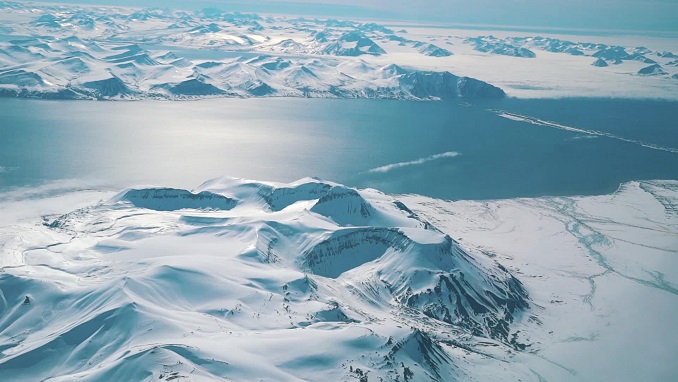Japan is stepping up efforts to cooperate with Russia on developing the Arctic region, with the government in Tokyo hoping that joint projects in shipping and natural gas exploration will accelerate talks for a bilateral peace treaty, the Nikkei Asian Review writes.
Japanese and Russian officials met Tuesday accompanied by members from the private sector to discuss economic cooperation. Japanese trading company Sojitz and airport operator Japan Airport Terminal have signed a deal to participate in the construction and operation of a passenger terminal at Khabarovsk International Airport in Russia’s Far East.
The development follows an October visit by Japanese Foreign Minister Taro Kono to Reykjavik, Iceland, where he became the first Japanese cabinet minister to take part in the Arctic Circle Assembly, a gathering bringing together an international assortment of government officials, business leaders and academics.
“Geographically, Hokkaido, our northernmost island, is a gateway from Asia to the Northern Sea Route,” Kono said in a speech, referring to the Arctic passage which has recently opened up during warmer months due to the melting ice. Passing through the Arctic would shorten shipping times and cut fuel costs for shippers, compared with routes using the more traditional Suez or Panama canals.
“We see potential opportunities for this route and I will encourage more Japanese companies to pay attention to Arctic businesses,” Kono said.
The possibilities inherent in developing the Arctic have captured imaginations across the globe. Five countries with coasts along the Arctic Sea, including Russia, the U.S. and Canada, have been actively developing the region in the name of national interest.
China calls itself a “near-Arctic state,” citing the fact that conditions in the Arctic have an impact on the country’s climate, agriculture, fishing and forestry. In January it issued its first ever white paper regarding plans for the Arctic and unveiled plans to construct a “Polar Silk Road” as part of its larger Belt and Road infrastructure initiative.












